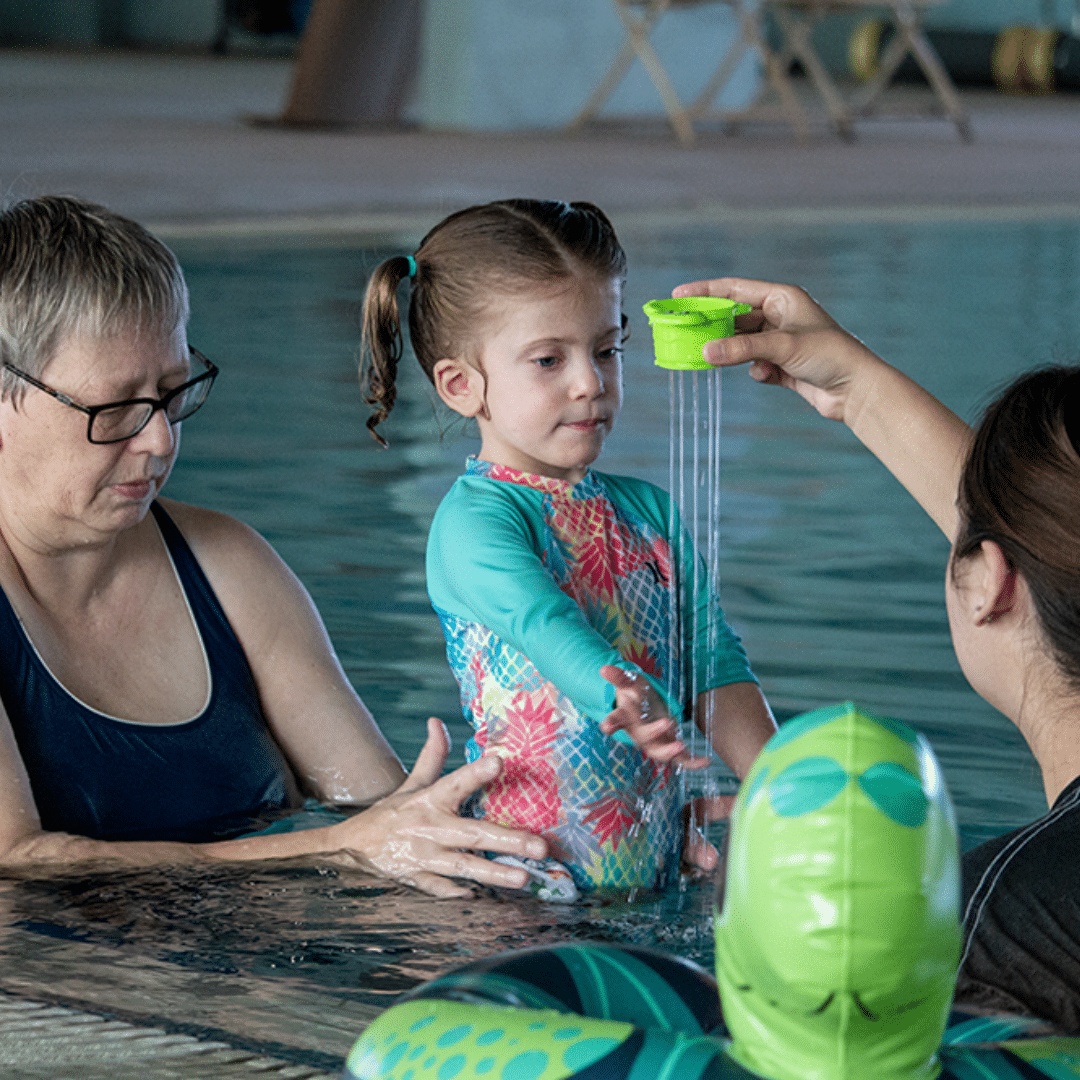BY: Amy Serafin
FUN IN THE POOL FOR PATIENTS
Aquatic therapy, also known as hydrotherapy or aquatic rehabilitation, is a form of physical therapy that takes place in a pool or other water-based environment. It offers numerous benefits for children with disabilities, promoting physical, cognitive, and social development. Here are some of the key benefits of aquatic therapy for children with disabilities:
- Buoyancy and reduced weight-bearing: Water provides buoyancy, which reduces the effects of gravity on the body. This allows children with disabilities to move more easily, experiencing reduced weight-bearing and less strain on their joints. The water’s buoyancy also helps improve balance and stability.
- Increased range of motion: Water’s natural resistance provides gentle pressure against the body, which can help improve muscle strength and flexibility. The buoyancy of water allows children to move their limbs through a wider range of motion, promoting joint mobility.
- Improved muscle strength and endurance: Aquatic therapy offers an environment where children can engage in various exercises and activities that target muscle strengthening. Water resistance increases the challenge for muscles, leading to improved strength and endurance over time.
- Enhanced cardiovascular fitness: Engaging in water-based exercises helps promote cardiovascular fitness. The resistance of water provides a gentle yet effective workout for the heart and lungs, improving overall cardiovascular health.
- Sensory stimulation: Water provides a unique sensory experience with its temperature, texture, and hydrostatic pressure. Aquatic therapy can stimulate the sensory systems of children with disabilities, enhancing their proprioception, tactile awareness, and overall sensory integration.
- Pain management: Warm water used in aquatic therapy can help relieve pain and muscle spasms, providing a soothing effect on the body. The hydrostatic pressure of the water can also reduce swelling and inflammation, providing pain relief for children with disabilities.
- Balance and coordination improvement: Water’s buoyancy and resistance challenge the body’s balance and coordination systems. By participating in aquatic therapy, children can enhance their balance, coordination, and overall body awareness.
- Increased confidence and self-esteem: Aquatic therapy can be a fun and enjoyable experience for children with disabilities. Achieving new physical milestones and experiencing success in the water can boost their confidence and self-esteem, transferring to other aspects of their lives.
- Social interaction and peer support: Participating in aquatic therapy often involves group sessions, providing opportunities for children with disabilities to interact with their peers. This social aspect promotes communication, cooperation, and the development of social skills.
- Relaxation and stress reduction: Water has a calming effect on the body and mind. Aquatic therapy can help children with disabilities relax, reduce anxiety, and manage stress levels.
Aquatic therapy at Children’s Clinics integrates the unique knowledge, skills, and training of a physical therapist, occupational therapist, and speech and language pathologist to provide rehabilitative services in a pool that are individual to each patient. It’s important to note that the specific benefits of aquatic therapy may vary depending on the individual needs and disabilities of each child. Consulting with one of our physical therapist can help determine if the aquatic therapy program is suitable for a specific patient.

